Related Articles
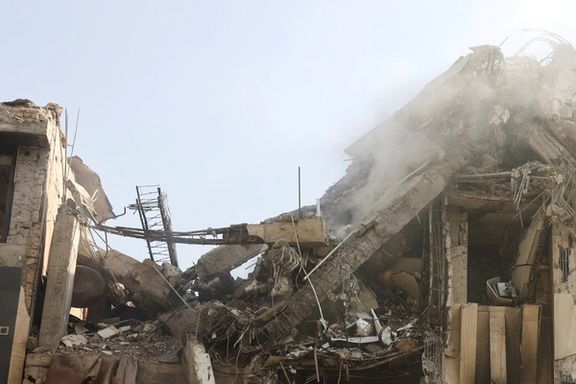
A senior Israeli security official told Iran International that Tehran must sign a nuclear deal or face further attacks that could end its rule, adding that Iran could avoid the Israeli attacks if it was honest in US talks.
“Iran can either sign an agreement or face ongoing attacks that will endanger the stability of its regime,” the official said on condition of anonymity.
“Iran deceived the United States during the negotiations and tried to buy time while continuing uranium enrichment,” the official added. “Had Iran entered the negotiations with sincere intentions, Israel would not have attacked.”
The comments appear to reflect a hardening of Israel’s stance toward Tehran after it had mostly focused its military blows on Iran's armed allies in the region but stopped short of signaling all-out war on the Islamic Republic.
“The strategy toward Iran will resemble the strategy used in Lebanon — the threat must not be allowed to materialize,” the source stated.
According to the official, the recent strikes have left Iran’s military apparatus in disarray. “The Iranians are currently in shock, their military leadership is virtually non-existent,” he claimed. “And more surprises are yet to come.”
Despite the intensity of the conflict, the source insisted that Israel’s actions are aimed at the Iranian establishment and not its people.
“Israel is not targeting the Iranian people but the Iranian regime,” he said. “The Iranian nation, with its proud history, deserves leadership that provides electricity and water — not one that spends the budget on global terrorism.”
Ali Shamkhani, a top advisor to Iran's Supreme Leader Ali Khamenei, has been killed in the Israeli airstrikes, multiple informed sources confirmed to Iran International.
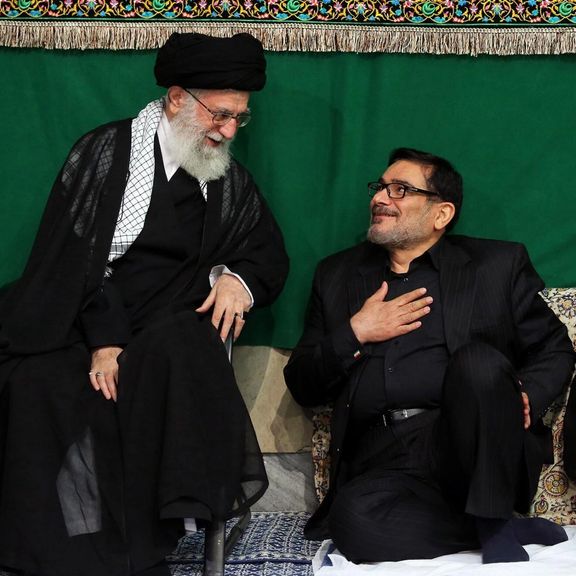
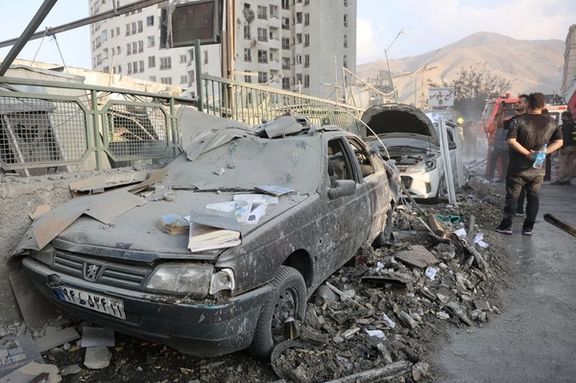
A senior Israeli official told Iran International that leaders' homes and not civilians were targeted in airstrikes in Tehran, as Iranian state media announced the death of the Revolutionary Guards chief Hossein Salami.
"Homes of senior military and political officials were targeted in Israeli airstrikes in Tehran," a senior Israeli political official told Iran International, speaking on condition of anonymity.
"Civilians are not the intended targets," the official added.
Iran International was the first media outlet to publish official confirmation of the Israeli attack on Iran and its targets.
State news outlet IRNA reported that Hossein Salami, the head of Iran's Islamic Revolutionary Guard Corps, along with another top commander and two senior nuclear officials were killed.
Ali Shamkhani, an advisor to Supreme Leader Ali Khamenei, was seriously wounded during an attack on his residence and has been transferred to a hospital in Tehran in critical condition, Nour News, a media outlet close to the Supreme National Security Council reported.
Khamenei is alive and being briefed on the situation following Israel's attack on Iran, Reuters reported citing a security source.
"Homes of senior military and political officials were targeted in Israeli airstrikes in Tehran," a senior Israeli political official told Iran International, speaking on condition of anonymity.
"Civilians are not the intended targets," the official added.
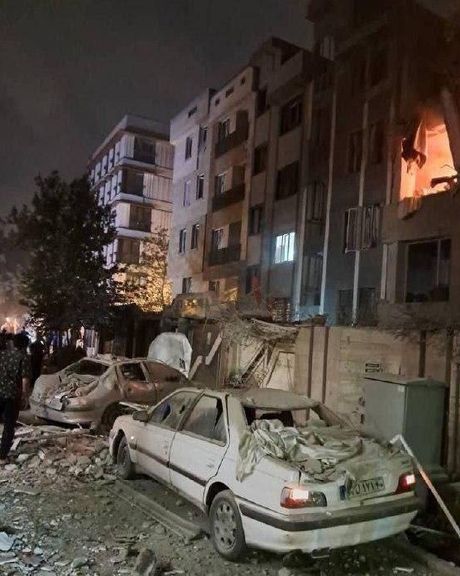
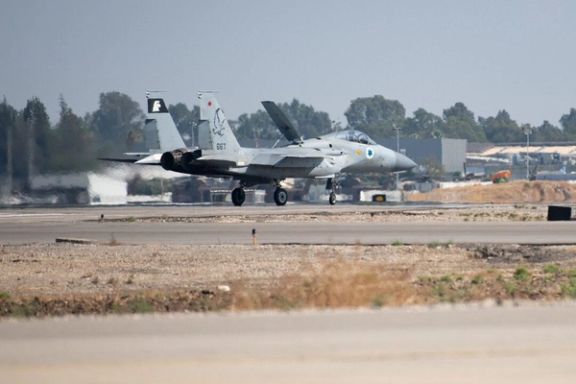
A senior Israeli official has warned that Israel is ready to launch a military strike on Iran if the next round of nuclear talks between Tehran and Washington, set for Sunday in Oman, fail to yield results.
The official, speaking to Iran International, said Israel is closely monitoring developments and could act unilaterally if necessary.
“The United States would require approximately three days to evacuate non-essential diplomatic personnel and their families from the region,” the source said. “That evacuation process reportedly began on Wednesday and is expected to be completed by Sunday, aligning with the timeline for the talks.”
According to multiple sources, the United States has already begun evacuating non-essential diplomatic personnel and their families from the region.
Israeli media reported Thursday that Strategic Affairs Minister Ron Dermer and Mossad Director David Barnea are set to meet US Special Envoy Steve Witkoff ahead of the talks in Oman.
Witkoff, speaking at an event for the Israeli medical charity United Hatzalah in New York on Wednesday, stressed that Iran must be permanently denied the ability to develop nuclear or missile capabilities.
“We must stand resolute and united against this danger and ensure that Iran never obtains the means to achieve its deadly ambitions no matter what the cost,” he said.
A senior Iranian official told Reuters that a regional ally had informed Tehran of the potential for an Israeli strike. "The tensions are intended to influence Tehran to change its position about its nuclear rights," the official said, but emphasized that Iran would not compromise on its right to uranium enrichment.
US President Donald Trump said Wednesday that American personnel were being withdrawn due to increasing threats in what he described as a “dangerous place.” He added that Washington remains committed to preventing Iran from acquiring a nuclear weapon.
Iran's Islamic Revolutionary Guard Corps (IRGC) issued a warning Thursday. “If our hands are untied, we will win victories that will make the enemy regret its actions,” IRGC commander-in-chief Hossein Salami said, signaling Iran’s readiness for any military confrontation.
An IRGC-affiliated outlet, Javan, warned that Tehran was prepared to walk away from negotiations if its national demands were not met, saying that Iran was negotiating “from a position of strength” and possessed sufficient nuclear expertise to act as a deterrent.
The New York Times, citing a senior Iranian official, reported Wednesday that Iranian military and government leaders had already held high-level meetings to discuss their response to any possible Israeli military strike.
Attacking Iran without US help
NBC News reported Thursday that while Israel would prefer to coordinate with the US, including intelligence or logistical support for strikes on Iranian nuclear facilities, it is prepared to act alone.
“While Israel would most likely prefer US military and intelligence support... it showed in October that it can do a lot alone,” the report said.
The same report cited five sources saying that Israel’s considerations of unilateral military action have intensified as the US inches closer to a preliminary deal with Tehran—one that reportedly includes provisions on uranium enrichment that Israel finds unacceptable.
US evacuating Baghdad embassy
Tensions have also led to regional security measures with the US embassy in Baghdad set to be evacuated partially.
Iraq’s state news agency also reported that steps to evacuate US personnel were underway not only in Iraq but across several Middle Eastern countries.
The UK Maritime Trade Operations (UKMTO) issued a security advisory on Wednesday, warning that increased regional tensions could impact maritime safety.
“UKMTO has been made aware of increased tensions within the region which could lead to an escalation of military activity having a direct impact on mariners,” the alert read.
The Washington Post reported Wednesday that the nuclear talks might not proceed as planned, citing two US officials who described the diplomatic environment as rapidly deteriorating.
Iran’s Defense Minister Aziz Nassirzadeh warned on Wednesday that Tehran would target American bases in the region if negotiations collapse and hostilities break out. “If a conflict is imposed on us... all US bases are within our reach and we will boldly target them in host countries,” he said.
Despite the rising tensions, Oman’s Foreign Minister Badr al-Busaidi confirmed Thursday that the sixth round of US-Iran nuclear negotiations will proceed as scheduled on June 15.
